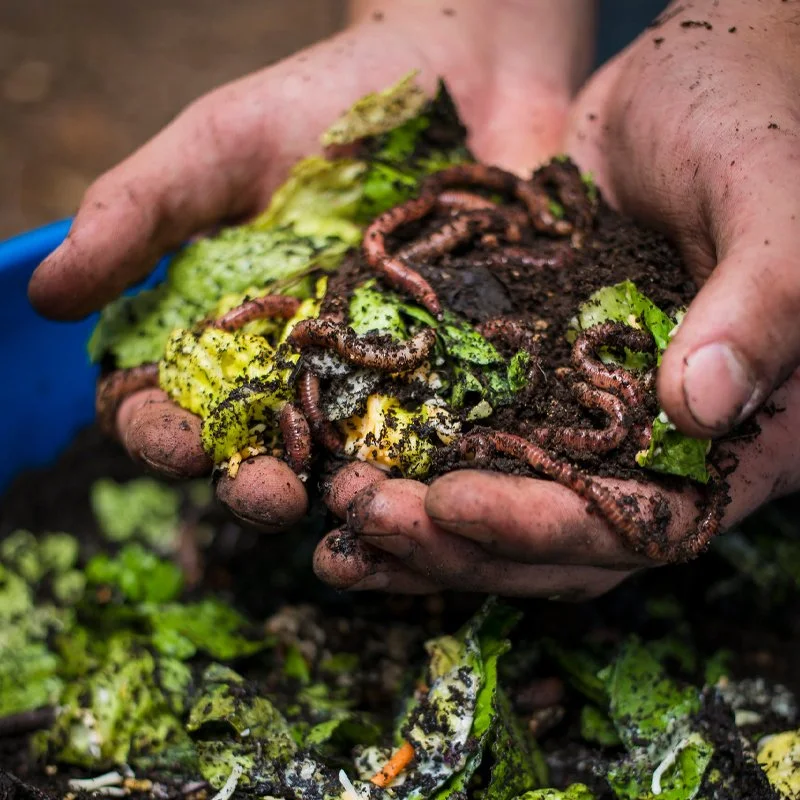
Pre-K Curriculum
Our curriculum was collaboratively developed by Farm to Preschool educators and community partners. Explore the topics of food and farming through eight lessons containing a diversity of critical thinking and hands-on activities designed for preschool-age students.
Curriculum Guide
We encourage you to begin with the Pre-K Curriculum Guide, which includes information about our development process, how to use the lessons, guiding principles, alignment with early learning priorities, and classroom practices. While the curriculum was originally designed for our internal team of educators, we hope this resource will help you introduce or expand farm-to-preschool themed activities with your students and families!
Farms and Farmers Lesson Plan
Farmers play an essential role in any society by producing our food. However, they are often undervalued and invisible in the food system. Images don’t often reflect the great diversity of ethnicity, gender, and age of farmers. This lesson brings attention to the immense value and skills that farmers bring to our communities and what they do at their farms. The goal is for students to finish the lesson with greater appreciation and awareness of what farmers do and what they grow. Includes the Farms and Farmers Parent Newsletter.
Food Traditions Lesson Plan
This lesson is about how food traditions can give us a sense of identity, connect with family and friends, and celebrate life! Students will learn the ways we celebrate special occasions with food and pass down traditions through generations. Celebrating and enjoying food with family and friends is one of the greatest joys that brings us together and can promote a positive identity. Includes the Food Traditions Parent Newsletter and links to companion materials.
Plant Parts Lesson Plan
This lesson introduces students to the different plant parts and what each part does for the plant. This helps them understand that we eat different parts of the plant and each part grows at different times of the year. Some foods may be surprising—for example, broccoli is a flower, tomatoes are fruit, and many spices are from seeds! This lesson can support the concept of seasonality and the idea of cycles similar to those in The Food System lesson. Includes the Plant Parts Parent Newsletter and links to companion materials.
Seasons Lesson Plan
This lesson helps students learn what a season is and how it can be observed through changes in our environment and behavior. Environmental changes can include weather, seasonal produce, and wildlife. Behavior changes can include the clothes we wear and the celebrations we have. Teaching children about seasons helps them learn about the passage of time, changes in nature, and can help establish a sense of community through shared food traditions. Includes the Seasons Parent Newsletter and links to companion materials.
Seeds Lesson Plan
Seeds are a wonderful entry point to learning about the lifecycle of a plant, plant parts, the environment, and food system. Seeds provide an opportunity to learn about the needs of a plant and draw connections to what our bodies and communities need to survive and thrive. We encourage students to celebrate the variety and diversity of seeds, observe the power a seed has, and how it transforms as it grows! Includes the Seeds Parent Newsletter and links to companion materials.
Soil and Worms Lesson Plan
Soil is one of the most important parts of growing food and critical for a healthy environment and life on earth! By exposing children to digging in the soil and exploring worms and other soil creatures, children are able to cultivate comfort with the outdoors and knowledge of how to care for living things. Includes the Soil and Worms Parent Newsletter and links to companion materials.
The Food System Lesson Plan
Our food system is complex, and students are often far removed from the source of food and how it gets to our tables. This lesson helps students understand where their food comes from and what part they play in the food cycle. When students understand how things connect to each other and how they can participate, their critical thinking is provoked. One goal is for students to gain a sense of responsibility to do their part, like composting food scraps to make soil. Includes The Food System Parent Newsletter and links to companion materials.
What Is Healthy Lesson Plan
This lesson examines the definition of “healthy” and guides students to understand what it means to be healthy for our mind and body. Students will explore how our food choices, exercise, and thoughts and feelings all influence our health. We hope that students gain a sense of agency through their choices, both body and mind, to support a healthy and holistic approach to life! Includes the What Is Healthy Parent Newsletter and links to companion materials.
Image credits: artichokes on stalks from Ulrike Leone on Pixabay; vermicomposting bucket from https://www.flickr.com/photos/cafnr/14682341391/









